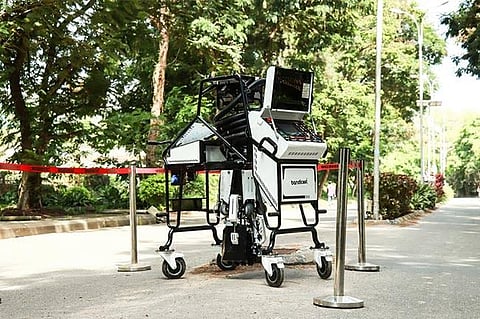Robots to soon take over sewage cleaning in Goa
Robots to replace humans? Yes! India’s smallest state Goa, will soon commence the trial run for Bandicoot, a robot deployed to clean clogged sewage chambers. This one of a kind initiative aims to eliminate manual scavenging, ensure human dignity, and curb manhole accidents.
Manual scavenging is a bane to the Indian system, especially the cleaners, as it is linked to the caste system, is a life threatening job and carries a social stigma along with it.
According to reports, 321 people have died due to accidents while undertaking hazardous cleaning of sewers and septic tanks in the past five years.
What are Bandicoot Robots and why are they necessary?
Developed by Kerela based GenRobotics, Bandicoots are pneumatic semi-robotic equipments, specially engineered to clean sewers and manholes. They consist of two components- the control unit and the robotic drone unit.
The control unit consists of a console to operate the robot, while the drone unit is the one which enters the manhole. The unit consists of legs which enable movement inside the hole, arms to pick up waste matter, a bucket to collect the waste and a camera with night vision to enable real time monitoring.
Goa acquired these robots from the National Institute of Oceanography last month and will now be put to trial. If successful, they will be used permanently by the government.
However, just employing robots for the work is not enough- we as humans need to understand the importance of waste segregation.
Public Works Department (PWD) Minister of Goa, Nilesh Cabral has appealed to people to stop discarding unwanted carelessly. Robots have limitations, and can only unclog the sewage but the removal of waste from clogged pipes will still fall on humans.
What is manual scavenging?
Manual scavenging is the practice of removing human excreta by hand from sewers or septic tanks. India banned the practice under the Prohibition of Employment as Manual Scavengers and their Rehabilitation Act, 2013 (PEMSR).
Why is it still prevalent in India?
The lack of enforcement of the Act and exploitation of unskilled labourers are the reasons. The Mumbai civic body charges between Rs 20,000 and Rs 30,000 to clean septic tanks. However, the unskilled labour is available at much cheaper, and contractors illegally employ them at a daily wages.
To get all the latest content, download our mobile application. Available for both iOS & Android devices.

